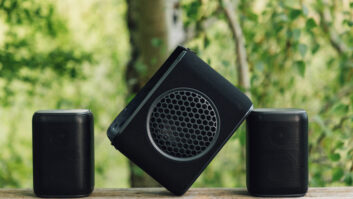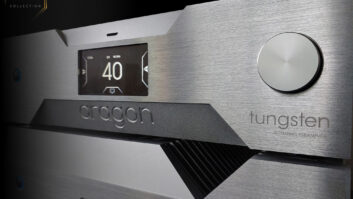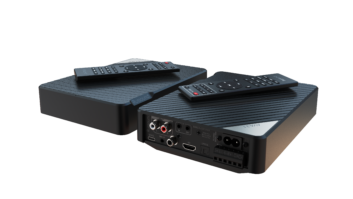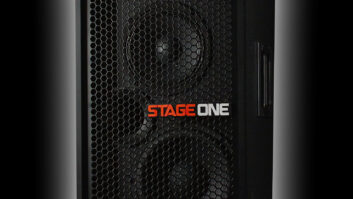UPDATE! Shizuoka,
Japan – Yamaha’s board approved a merger effective April 1 of its U.S. home-audio
subsidiary with its U.S.-based musical instruments and pro audio subsidiary,
but the merged entity has no plans to merge sales or rep forces.
The merger “has
the objectives of realizing maximum synergies and increasing management
efficiency, principally in administrative business processes, by implementing
closely coordinated sales and marketing of musical instruments and A/V [home
audio] products,” Yamaha said.
The home business,
called Yamaha Electronics Corp. (YEC) USA, will become part of the larger
Yamaha Corp. of America (YCA), which not only markets musical instruments and
pro audio equipment but also manages music schools. YCA will continue to be
headed by president Takuya Nakata. Tom Sumner, who is both YEC president and
YCA senior VP, will retain his YCA senior VP title.
Both subsidiaries
are located in Buena Park, Calif. YEC has 39 employees, and YCA has 335.
The merger “mirrors
Yamaha’s structure in other parts of the world” and follows mergers in recent
years of Yamaha’s home audio and musical instruments/pro audio subsidiaries in
the U.K. and Europe, Sumner told TWICE.
Though YEC will
become a part of YCA, many YEC functions have already been transferred to YCA
over the past several years, including the parts and service department and
accounting, he noted.
As a result,
Yamaha will gain only “some small financial advantages” with the merger,
including less accounting and tax paperwork, he said.
Within the merged
entity, home audio sales, marketing, credit, and consumer and dealer support
will remain separate because the sales channels for home and musical
instruments, and pro audio “are really different channels,” Sumner said.
Nonetheless, some
YEC products, such as headphones, cross over into the pro and musical
instruments category, and a handful of music dealers have begun to sell
two-channel home audio equipment for use in home studios.
Yamaha bills
itself as the world’s largest musical instruments manufacturer, and musical
instruments accounted for 73.3 percent of its consolidated worldwide sales in
the first nine months of fiscal 2012. Home audio and IT equipment combined
accounted for 15.6 percent of consolidated sales.
While announcing
the merger, Yamaha also released financial results showing declines in sales
and net income for the nine-month fiscal 2012 period, which ended Dec. 31. Nine-month
sales fell 5.2 percent to 270.6 billion yen ($3.56 billion), operating income
fell 32.8 percent to 11 billion yen ($144.3 million), and net income fell 72.7
percent to 2.73 million yen ($35.8 million).
For the full
fiscal year, the company revised down its previous forecast, made in
mid-December. The company now forecasts net sales of 354 billion yen, down 4.1
percent from the previous forecast; operating income of 7.5 billion yen, down 40
percent from the previous forecast; and zero net income, down from a previously
forecast 4 billion yen ($52.6 million).
Conversion rates
are based on 76.1 yen to the dollar.
The reasons for
the revisions, the company said, “include the emergence of delays in production
of digital musical instruments, even after the resolution of the difficulties
in procuring parts in the wake of the Great East Japan Earthquake, and the
resulting loss of sales opportunities; the outlook for a decrease in sales in
the semiconductor business; an increase in the impact of foreign currency
fluctuations due to further substantial appreciation of the yen; and other factors.”
If the forecast
pans out, fiscal 2012 sales will be down 1.3 percent from fiscal 2011,
operating income will be down 5.1 percent, and zero net income will compare to
5.1 billion yen net income (67 million) in fiscal 2011.
Japan-based Yamaha
markets home and professional audio equipment, IT equipment, semiconductors,
golf products, and car interior wood components and also operates sports and
accommodation facilities.
Shizuoka, Japan – Yamaha’s board
of directors approved a merger effective April 1 of its U.S. home-audio
subsidiary with its U.S.-based musical instruments and pro audio subsidiary.
The merger, the company said,
“has the objectives of realizing maximum synergies and increasing management
efficiency, principally in administrative business processes, by implementing
closely coordinated sales and marketing of musical instruments and A/V [home
audio] products.”
The home business, called
Yamaha Electronics Corp. (YEC) USA, will become part of the larger Yamaha Corp.
of America (YCA), which not only markets musical instruments and pro audio
equipment but also manages music schools. YCA will continue to be headed by president
Takuya Nakata.
Both subsidiaries are located in
Buena Park, Calif. YEC has 39 employees, and YCA has 335.
The merger will follow mergers in
recent years of Yamaha’s home audio and musical instruments/pro audio subsidiaries
in the U.K. and Europe.
Though YEC will become a part of
YCA, many YEC functions had already been transferred to YCA over the past
several years, including the parts and service department and accounting.
Requests for additional details
have not yet been answered.
While announcing the merger, Yamaha
also released financial results showing declines in sales and net income for
the nine-month fiscal 2012 period ending Dec. 31. Nine-month sales fell 5.2
percent to 270.6 billion yen ($3.56 billion), operating income fell 32.8
percent to 11 billion yen ($144.3 million), and net income fell 72.7 percent to
2.73 million yen ($35.8 million).
For the full fiscal year, the company revised
down its previous forecast, made in mid-December. The company now forecasts net
sales of 354 billion yen, down 4.1 percent from the previous forecast;
operating income of 7.5 billion yen, down 40 percent from the previous
forecast; and zero net income, down from a previously forecast 4 billion yen
($52.6 million).
Conversion rates are based on 76.1 yen to the
dollar.
If the forecast pans out, fiscal 2012 sales
will be down 1.3 percent from fiscal 2011, operating income will be down 5.1
percent, and zero net income will compare to 5.1 billion yen net income (67
million) in fiscal 2011.
The reasons for the revisions, the company
said, “include the emergence of delays in production of digital musical
instruments, even after the resolution of the difficulties in procuring parts
in the wake of the Great East Japan Earthquake, and the resulting loss of sales
opportunities; the outlook for a decrease in sales in the semiconductor
business; an increase in the impact of foreign currency fluctuations due to
further substantial appreciation of the yen; and other factors.”













